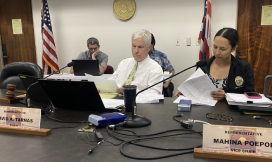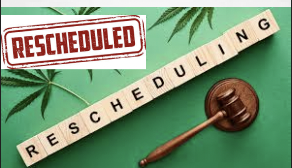Civil Beat
The issue is back again this session in the form of House Bill 1246, which would legalize the personal use of marijuana for people 21 years of age and older beginning in 2026.
But HB 1246 goes beyond legalization. It calls for creating a new state agency within the Department of Commerce and Consumer Affairs to regulate adult use of recreational and medical marijuana, and hemp, which contains low levels of THC, the active ingredient that gets people high. That regulation would include taxing retail sales.

Tarnas, who lost a reelection bid in 1998 but was elected again in 2018 to represent his Big Island district, is the key figure on cannabis legislation. On Tuesday, the House Judiciary and Hawaiian Affairs Committee that he chairs passed HB 1246, as did the House Agriculture and Food Systems Committee.
Tarnas, who authored the bill, has spent many months crafting it with extensive input from sources including mainland experts familiar with cannabis laws in states such as Massachusetts.
Hawaiʻi’s approach must be comprehensive and legally sound, he said. To help people better understand the bill, his committee’s website offers a compendium of information including a section of FAQs.
HB 1246 is lengthy and detailed — nearly 50,000 words. It has two more House committees to clear, including the powerful Finance Committee.
Dollar figures in HB 1246 for hiring staff in what would be the Hawaiʻi Cannabis and Hemp Office are currently blank, as is common at the early stage of the bill hearing process in Hawaiʻi. The same goes for many other money requests in the bill for setting up a state cannabis testing facility and a public health and education program.
If HB 1246 clears the House, it has to go through the same process in the other chamber. Its Senate companion, Senate Bill 1613, has not been scheduled for a hearing, suggesting that senators are letting the House take the lead for now.
Hovering above all of this is the fact that marijuana remains a Schedule I drug at the federal level, along with heroin, LSD, Ecstasy and peyote. They are considered substances with “no currently accepted medical use and a high potential for abuse,” according to the U.S. Drug Enforcement Administration.
There seems to be some momentum to remove pot from Schedule I status, as well as growing recognition that other drugs on the list may have medical use. But their legal and medical statuses remain in flux.
Still, Tarnas wants to see Hawaiʻi join the 24 other states and the District of Columbia that have legalized recreational use for adults. At an informational briefing last week, he called his measure “an important matter.” Hawaiʻi was not ready for such a bill 30 years ago, he said, but “we are getting closer.”
Read more
Marijuana Legalization Gets Initial Approval From 2 House Committees

















